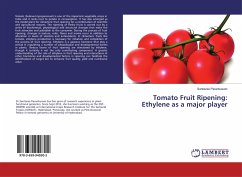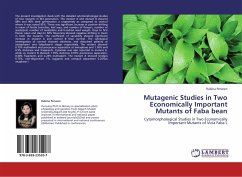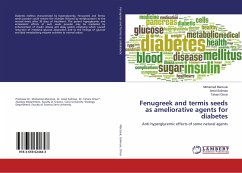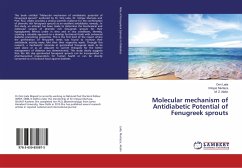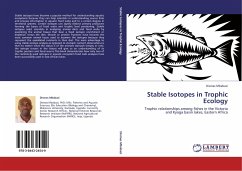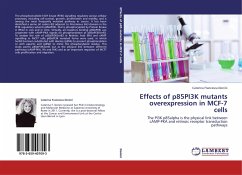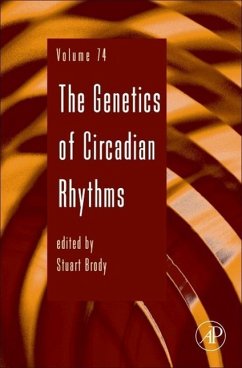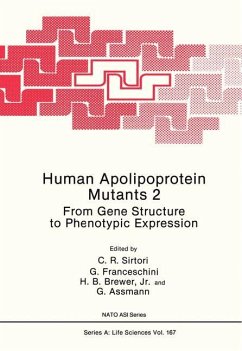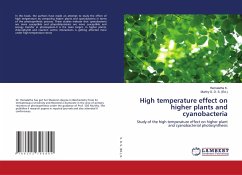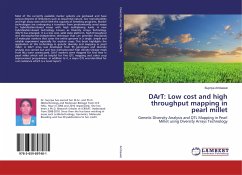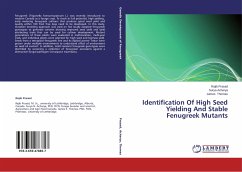
Identification Of High Seed Yielding And Stable Fenugreek Mutants
Versandkostenfrei!
Versandfertig in 6-10 Tagen
47,99 €
inkl. MwSt.

PAYBACK Punkte
24 °P sammeln!
Fenugreek (Trigonella foenum-graecum L.) was recently introduced to western Canada as a forage crop. To reach its full potential, high yielding, early maturing fenugreek cultivars that produce good seed yield and quality within 100 frost free days need to be developed. In this study, mutation breeding approach was used on five locally adapted fenugreek genotypes to generate variants showing improved seed yield and yield attributing traits that can be used for cultivar development. Mutant generations of these plants were evaluated in multi-location, multi-year trials, and individual plants were...
Fenugreek (Trigonella foenum-graecum L.) was recently introduced to western Canada as a forage crop. To reach its full potential, high yielding, early maturing fenugreek cultivars that produce good seed yield and quality within 100 frost free days need to be developed. In this study, mutation breeding approach was used on five locally adapted fenugreek genotypes to generate variants showing improved seed yield and yield attributing traits that can be used for cultivar development. Mutant generations of these plants were evaluated in multi-location, multi-year trials, and individual plants were selected for high seed and biomass yield. Seeds from a tetraploid fenugreek line and its diploid parent Tristar were grown under multiple environments to understand effect of environment on seed oil content. In addition, mold resistant fenugreek genotypes were identified by screening a collection of fenugreek accessions against a destructive fungal pathogen Cercospora traversiana.



